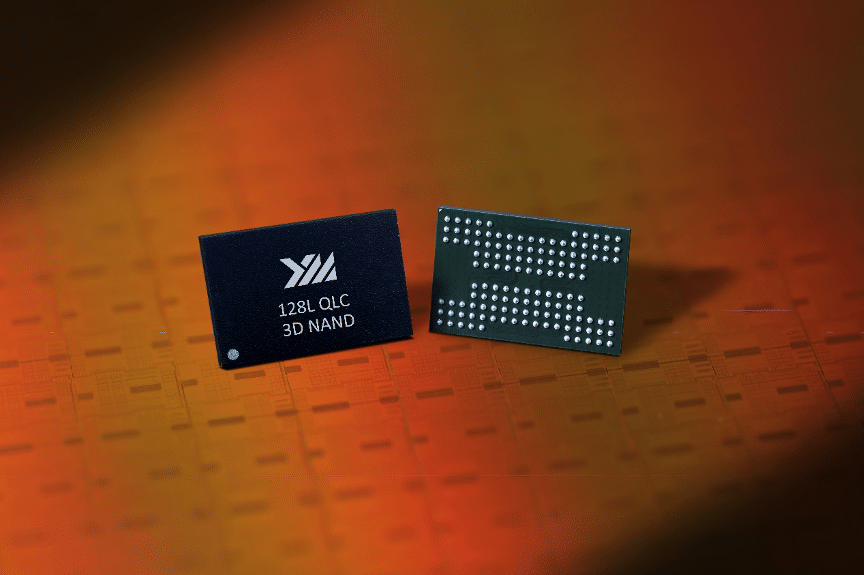Today, Yangtze Memory Technologies Co., Ltd (YMTC) announced the YMTC 128-Layer QLC 3D NAND, in the form of the 1.33Tb NAND memory chip, X2-6070. YMTC states that the new NAND has passed verification with several controller partners, but didn’t name them. The company goes on to claim that this new QLC NAND highest bit density, I/O speeds, and capacity in the industry. YMTC has released a 128-layer 512Gb TLC (3 bit/cell) chip, X2-9060, today as well.

YMTC first announced their 3D NAND technology, Xtacking, back in 2018 at FMS. As we wrote at the time, Xtacking uses a separate wafer for the periphery circuits which handle data I/O as well as memory cell operations freeing up die area for better density. The company states that it has optimized the design and manufacturing processes of CMOS circuits and memory arrays. The company has built upon this technology and brought it to Xtacking 2.0.
QLC is more known for having a higher capacity and being more cost-effective versus other types of flash that are all about performance (or the recent fragmentation where certain drives are better for certain actions). The new version of YMTC’s 128-layer comes with the newer version of Xtacking. This NAND is said to hit 1.6Gbps on both X2-6070 and X2-9060 by using 1.2V Vccq. These numbers would be impressive on a QLC drive. From capacity, the X2-6070 QLC chip has 128 layers of array stacks and contains more than 366 billion effective charge-trap memory cells. As a single memory cell contains 4-bit data, each chip provides a total of 1.33 Tb.




 Amazon
Amazon